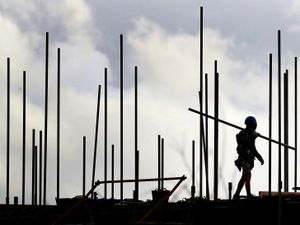Wrekin mining protesters back 'buffer zone' Bill
Campaigners in Shropshire have backed a Private Members' Bill which has been introduced in Parliament to create a 500m "buffer zone" between opencast mining developments and people's homes.

Campaigners in Shropshire have backed a Private Members' Bill which has been introduced in Parliament to create a 500m "buffer zone" between opencast mining developments and people's homes.
Hundreds of protesters attempted to block plans by UK Coal to mine 900,000 tonnes of coal at Huntington Lane, Little Wenlock, Telford, on the grounds the development would be too close to homes and lead to increased dust, noise and misery.
The development in the shadow of The Wrekin is set to go ahead later this year, after a ruling by the then Secretary of State John Denham.
But campaigners have now been given hope after the introduction of the Bill by Leicestershire MP Andrew Bridgen in response to another UK Coal development in his constituency.
Mr Bridgen is calling on the Government to follow the lead of Scotland and Wales, where 500m buffer zones are already law.
It means mining developments have to be a minimum of 500m away from homes.
Success
And Friends of the Ercall member Pat Judson, who has long fought the Little Wenlock development, today said he hoped it would become law.
County MPs David Wright and Mark Pritchard have previously raised the issue in the Commons without success.
Mr Judson said: "This would end the discrepancy that allows Scotland and Wales protection, but not us.
"The opposition to UK Coal's opencast mine plans for Huntington Lane welcomes this move and hopes that law will indeed be instilled to ensure equality between all peoples of the UK faced with the hideous prospect of an opencast mine nearby.
By making a 500m buffer zone applicable to all new opencast mines not yet begun, this would ensure further carbon reduction targets to be met easier, by the retention of the coal lying beneath the 500 metre buffer zone," he added.
But UK Coal spokesman Stuart Oliver said even if the Bill received support, it could take "years" for it to get through Parliament.
"What really matters is not a buffer zone but the conditions applied to a site's operation," he said.
"The conditions attached to the Huntington Lane site are onerous on the operator and, if breached, could lead to work there being halted.
"These conditions are far more effective for the community than a buffer zone which is just a measure of distance and takes no account of prevailing winds or conditions," he added.





